There are plenty of reasons to cut back on or cut out alcohol. Whatever your motivation – budget, liver, mental health, sleep – an alcohol-free lifestyle is also more sustainable. That’s right, the alcohol industry uses huge amounts of resources and emits a lot of greenhouse gases. What about non-alcoholic beverages though? Is there such a thing as sustainable non-alcoholic beer?
Table of Contents
In short, yes! Here are some of the best sustainable non-alcoholic beers around. I’ve rigorously taste-tested many non-alcoholic beers over the past couple of years while trying to conceive, pregnant, and nursing and, honestly, I’m a total convert! I barely drink any alcohol at all now and don’t miss it, thanks in large part to the tasty beers below.
A quick note: State regulations prohibit the shipping and sale of non-alcoholic beer in Georgia, Idaho, Kansas, Michigan, Mississippi, and Nebraska, so you might have to petition your legislators to try these beers if you live in one of these states.
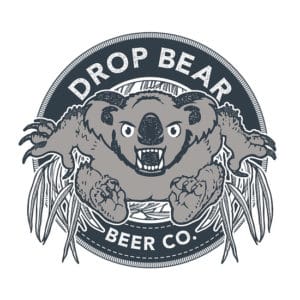
The most sustainable non-alcoholic beer
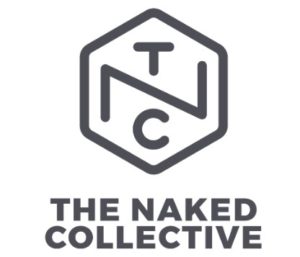
Sustainable non-alcoholic beer runner-up
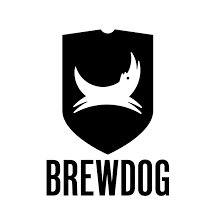
Third pick
How sustainable is non-alcoholic beer?
A 2007 study by the Food Climate Research Network (the FCRN) found that alcohol production, storage and consumption generated approximately 1.5% of the UK’s total greenhouse gas emissions. In 2018, the FCRN reported that the manufacture, packaging, and transportation of alcohol in Sweden generated 52 kg CO2 per person annually.
See also: The most eco-friendly & sustainable mezcals and our top picks for eco-friendly wine.
That carbon footprint comes by way of growing, harvesting and transporting raw materials like barley and hops, processing the beer, packaging and transporting beer worldwide, and then serving it and discarding packaging. Just growing barley and hops can wreak havoc on waterways, soil health, and biodiversity. Transporting huge amounts of grains and hops also means lots of trucks on the road (those some breweries favor rail, like Sierra Nevada), and then lots of waste if the spent grains and hops aren’t used to feed animals or for biogas capture.
Brewing is also an energy intensive process, with heating and cooling, followed by bottling, canning, or kegging. Add refrigeration, transportation and packaging that’s not always recyclable or recycled and you can see how beer is a wasteful, carbon heavy indulgence.
The good news is that non-alcoholic beer has a lower impact, both on your liver and the environment. According to RISE, Sweden’s research institute and innovation partner, alcohol accounts for roughly 3% of Swedes’ food and drink carbon footprint. Men had almost twice the alcohol footprint of women in Sweden (68 kg CO2e annually compared to 36 kg CO2e for women). This despite women drinking more wine and men drinking more beer, because, as it turns out, wine has a much higher carbon footprint than beer.
What’s more, the carbon footprint of low- or non-alcoholic beer was just a third of that of wine. In Sweden, low-alcohol beer had a footprint of 0.73 kg CO2e per liter, largely because Swedes tend to buy low-alcohol beers made locally, rather than importing them from far away. Regular-strength beer, in contrast, clocked in at 0.81 kg CO2e, while spirits came in at 2.07 kg, wine at 2.16 kg, and fortified wine at 2.38 kg CO2e per liter.
Interestingly, non-alcoholic beer had a slightly larger carbon footprint (0.76 kg) than low-alcohol beer. Why? Probably because dealcoholizing beer requires more energy than making a low-alcohol beer in the first place.
The irony, of course, is that all those emissions lead to climate change, and climate change imperils the raw ingredients for beer, such as barley and hops. Changes in weather, resulting in droughts, flooding, wildfires, and more intense hurricanes, tornadoes, and so forth can all lead to crop losses and higher costs of production. Waterways are also increasingly polluted, which affects the quality of water used to make beer.
Room for improvement
Non-alcoholic beer is traditionally made by brewing regular beer and then removing the alcohol through various means. These include vacuum distillation, reverse osmosis, and boiling, all of which require added energy inputs. The other main approach has been to arrest fermentation through the careful control of sugars and yeasts. All of these approaches tend to result in beer with less depth of flavor than alcoholic brews.
BrewVo is a new process that enables production of non-alcoholic beers that are significantly more flavorful and sustainable. This process lets the beer fully ferment after processing, with alcohol content gently managed instead of removing alcohol after fermentation. BrewVo also has the advantage of producing a beer ‘concentrate’ where water is removed before shipping, facilitating significant reductions in carbon emissions associated with transport and storage.
BrewVo systems are small and portable and can work for breweries of all sizes and shapes. The system can increase capacity while reducing water use by up to 80%. BrewVo beer can also be frozen to prolong shelf-life, reducing waste. The really big advantage though is that BrewVo reduces weight and volume by 86%, making it easier to transport beer over larger distances at a lower cost. That said, the system relies on disposable bags in boxes rather than reusable kegs, and it’s not clear how easy these are to recycle.
BrewVo was dreamt up by a Colorado-based company called Sustainable Beverage Technologies (SBT). The “nested fermentation” process involves brewing a standard beer first, then extracting the alcohol and adding a new batch of wort to kickstart another round of fermentation. The system repeats this several times, resulting in a viscous beer concentrate packed with flavor but minus the alcohol. The alcohol is stored separately and can be shipped alongside the beer concentrate to be added back in along with water and carbonation at the point of serving. Or, if desired, the alcohol isn’t added back, making the beer alcohol-free.
Another beer concentration method also exists, thanks to the Massachusetts Institute of Technology and Swedish company Alfa Laval. The Revos machine uses reverse osmosis to concentrate beer and wine through high-pressure, low-temperature processing. This leaves alcohol, flavors, and aromas intact but makes the beer concentrate five times more efficient to transport.
Both BrewVo and Revos require specialist technology for rehydration and carbonation at the other end of the transport chain. The beauty of these tap systems is that customers can add just as much alcohol as they want, giving us an unprecedented level of control over our booze intake.
What does this beer from concentrate taste like though? Well, BrewVo brewed up a batch of nonalcoholic beer that won gold at the 2019 Best of Craft Beer Awards. Deschutes also used the technology to make a non-alcoholic Irish Style Dark that won bronze at the Australian International Beer Competition.
Making beer without… hops?
Non-alcoholic beer can definitely taste flat and watery, but Revos, BrewVo and other brewing methods are making beer connoisseurs pay attention again. The biotech company EvodiaBio, founded by two academics at the University of Copenhagen, is also getting in on the fun.
The scientists, being scientists, found a way to produce monoterpenoid molecules (basically, the hoppy flavor in beer) that they can add to beer at the end of brewing. By using yeasts to synthesize these hoppy molecules, EvodiaBio can restore flavor lost when the alcohol is removed.
This process also has the potential to significantly reduce the environmental footprint of beer as aroma hops become redundant in the brewing process. Instead, the scent and flavor come from the molecules grown by the yeast, using 10 times less water and producing 100 times less CO2 than growing hops.
Currently, most aroma hops grown in the US are farmed on the west coast, where there’s already a high demand for scarce water. And hops are a water-hungry crop, needing approximately 2.7 tons of water to grow just one kilo. The hops then get transported all across the US in refrigerated trucks, adding to carbon emissions associated with beer.
Breweries in Denmark are testing the EvodiaBio method with a plan to launch the process on a wider market later this year.
Growing hops more sustainably
While some scientists work on getting rid of aroma hops altogether, others are looking to vertical farming and artificial intelligence to make hop cultivation more climate friendly. One company, Ekonoke, aims to allay the beer industry’s concerns over hop crop failures, environmental impact, and price hikes by carefully controlling hop production indoors.
The company is combining a hop breeding program, epigenetics, and a hydroponic system to produce higher quality hops with less energy, 20 times less water, and fewer nutrient inputs (because nutrients are recirculated more easily). The controlled environment also means better management of pests, fungi, and diseases, helping to eliminate pesticide and insecticide use and letting the plants focus their energy on growth.
Ekonoke predicts that its climate-resilient sustainable hops will soon be growing in every continent to fuel the beer industry. The founders of the company didn’t necessarily go into business to support beer production. Instead, they were looking for crops with significant climate risk and saw that hops were top of the list. This alone is why many breweries are making waves about sustainability and climate change; they’re desperate to address the impact of changing temperatures and rainfall and the loss of hop farmers turning to other, more climate-resilient crops.
Ekonoke’s ambition is to have a fully operational 10,000 m2 farm in Galicia, producing up to 90,000 kg of hops annually, by the end of 2023. The company will follow this up by adding two large scale farms every year in 2024 and 2025, and then at a greater pace from 2026 onwards. This plan focuses on placing the vertical farms close to major breweries, so that treated brewery wastewater and CO2 can be used to fuel the hops’ growth, while also eliminating transport and packaging of hops from farm to brewery.
The top breweries

Drop Bear Beer Co.
Highlights: The first Welsh B Corp brewery, woman-owned, carbon positive, and the first carbon-neutral alcohol-free brewery making vegan, gluten-free, non-alcoholic brews for all.
Drop Bear has already won a bevy of awards for its bevvies. These include prizes at the World Beer Awards 2021, European Beer Challenge 2021, and Great Taste and Imbibe awards, putting these non-alcoholic beers firmly alongside award-winning alcoholic brews.
Drop Bear Beer Company offers several non-alcoholic beers including New World Lager, Yuzu Pale Ale, Tropical IPA, and Bonfire Stout. The company began in 2019 and makes traditionally brewed beer that is all non-alcoholic, gluten-free, vegan, and low calorie.
About the company
Drop Bear Beer Co. is a woman-owned, carbon neutral, Welsh B Corp making alcohol-free craft beers. The company has offset all its carbon emissions since its first day of business and operates the world’s first carbon neutral alcohol-free brewery in South Wales.
When Drop Bear founders Joelle Drummond and Sarah McNena dreamt up the brewery, they put environmental, ethical, and social responsibility at the center of operations. Plenty of breweries are starting to offset emissions but few are doing the hard work of reducing emissions from the get go.
Drop Bear launched its beers in more than 200 Co-Op stores in England in early 2022 and favors likeminded retailers with a strong social purpose. Drop Bear is collaborating with specialist organizations with expertise in carbon emissions reduction, renewable energy, and environmental impact analysis and its ‘green brewery’ plan was supported by a grant from the Welsh Government’s Decarbonisation and Covid Challenge Fund.
Drop Bear is the UK’s largest alcohol-free brewery and has been built to be energy efficient with heat exchange and steam recapture systems. It will also transform waste via anaerobic digestion into renewable energy for the brewery and local community.
The company plans to include QR codes on packaging that customers can scan to learn more about Drop Bear’s carbon offsetting projects. Including planting more than 1800 trees so far. Drop Bear is Wales’ first B Corp brewery, a Living Wage employer, and signatory to the Welsh Government’s Equality and Green Growth pledges.
Drop Bear switched from bottles to easily recyclable 330 ml cans to conserve resources. The company has been Climate Positive for more than two years, uses a zero-emissions vehicle, renewable energy and recyclable materials. Its office is paperless and the company plants 12 trees per employee every month. Even its merchandise is sustainable, made with organic cotton and old t-shirt material, and shipped with plastic-free packaging and a renewable energy-powered supply chain.

So.Beer – The Naked Collective
Highlights: Carbon neutral certified non-alcoholic light lagers brewed in Niagara Falls, Canada, and with added immune-supportive nutrients.
So.Beer is a collaborative non-alcoholic light lager from The Naked Collective. Marketed as Beer with Benefits, So.Beer is brewed to preserve naturally occurring vitamins and minerals and has added ImmunoBoost Formula, including 250 mg of beta-glucan to support the immune system.
So.Beer is available as two alcohol-free lagers: Refresh, with a clean finish, and Grapefruit for a zesty flavor. These two brews have 0.3% ABV, 40 calories, and just 7 g of sugar per can. They are vegan-friendly and non-GMO verified as well as carbon neutral through offsets with Climate Partner.
Unlike most non-alcoholic beer, So.Beer is brewed alcohol-free from the start, meaning it isn’t boiled to remove the alcohol. This means the nutrients are retained and there’s no artificial flavors added to replace the flavors lost when the alcohol is removed.
About the company
The Naked Collective (TNC) is an Irish ‘carbon neutral start-up beverage company’ which specializes in working with local producers to brew and distribute drinks. To make So.Beer, TNC partners with Blackburn Brewing in Niagara Falls.
TNC aims to be a leader in environmental and social sustainability and is committed to transparency, with a sustainability report soon to be published. The collective only partners with those that share its values, including working towards a regenerative economy. For instance, TNC partners with Hoja Nueva in Peru to fund a rehabilitation and re-introduction project to protect and fortify Amazonian biodiversity.
All TNC cans are 100% recyclable and delivery materials are compostable or recyclable too. TNC currently ships across the UK, Ireland, Italy, the U.S., and Canada and will soon be offering beer subscriptions!

BrewDog
Highlights: Carbon negative brewery and B Corp making four non-alcoholic beers alongside its standard brews. Radically transparent and funded by punk beer enthusiasts!
BrewDog offers four non-alcoholic beers, three with AF appended to their name. Take this as you will. The other non-alcoholic beer was its first and is named Nanny State. The brewery brought out this beer as a reaction to criticism that its beers were too strong. Showing Brewdog’s versatility, Nanny State is a delicious Pale Ale packed with Centennial, Amarillo, Columbus, Cascade and Simcoe hops, dry hopped to a staggering 45 IBU. It also boasts 8 different malts, making Nanny State a great choice if you love strong-tasting beer but don’t want the alcohol.
The other three beers are a little less intense, offering just 20 calories per beer and 2.3 g of carbohydrates. These are all vegan (Nanny State isn’t) and gluten-reduced. There’s the New England Style Hazy AF, which is juicy, tropical, and grassy. This IPA boasts Cascade, Citra, Mosaic, and Simcoe hops, with wheat and oat for a smooth taste.
The Elvis AF has a grapefruity flavor with orange and pine and a solid malt base. Its hop profile comprises Cascade, Centennial, and Citra, with pink grapefruit extract, blood orange extract, and natural grapefruit extract rounding things out. Punk AF is another juicy, tropical brew with grassy and pine notes.
About the company
BrewDog is a Scottish company that’s been around since 2007. It operates four breweries and 112 bars worldwide, with 13 more under construction and various collaborations with breweries in the US, UK, and Australia. Brewdog makes and serves standard beers and non-alcoholic beers alike and is a carbon negative B Corp as of 2020.
BrewDog cuts carbon emissions where it can and double offsets what it can’t. In 2020, while other companies cited the pandemic as a reason for increased emissions, the brewing company reduced its emissions by 35% per liter of beer. This was achieved by switching to renewable energy, cutting air travel, and using electric delivery vehicles.
In 2020, BrewDog purchased a 9,308 acre plot of land in Scotland and in 2022 has begun planting trees. This will constitute one of the UK’s largest reforestation and peatland restoration projects.
BrewDog is at least 25% owned by its employees and the Equity Punk community. This community rallied in 2009 when the brewery needed a loan to expand but couldn’t access traditional financing. More than 200,000 shareholders stepped up worldwide to raise £31 million (approx.. $46.5 million USD).
The company operates with radical transparency, publishing annual reports over and above those required by B Labs for B Corp status. It even hosts a BrewDog Transparency Dashboard where you can find its employer score, carbon footprint, headcount, tree planting initiatives, and info on its beers currently brewing!
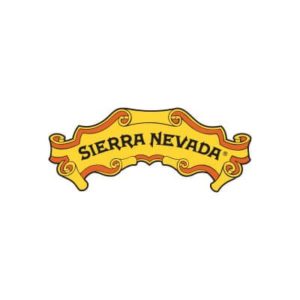
Sierra Nevada Hop Splash
Highlights: Sparkling hop water (rather than a true non-alcoholic beer) from a family owned company with serious sustainability credentials, leading the industry on eco-friendliness.
Hop Splash is a zero alcohol, sparkling hop water with zero calories, carbs, or sugar. Sierra Nevada describes it as a showcase exclusively for hops, offering craft beer lovers a bubbly refreshment without any alcohol. The beverage is brewed without yeast or sugars, so there’s no alcohol, just crisp, clean, bright and fruity hops from Citra and Amarillo varieties.
While Hop Splash isn’t strictly a beer, the carbonation is similar to Sierra Nevada beers and it has some of the familiar IPA flavor. However, the fermentation-free process means the hops are very fruit-forward, unlike after the typical alcohol brewing process which draws out a grassier flavor.
About the company
What Sierra Nevada lacks in variety for non-alcoholic beers it more than makes up for with sustainability initiatives. The company is family owned and operated and all its hops are grown on its estate farms and certified organic and Salmon Safe certified. The brewery has two sites, one of which is the first LEED platinum production brewery in the U.S.
Sierra Nevada has an impressive array of green projects; literally, it has one of the largest solar arrays in craft brewing, providing 2.5 MW of power. The two brewery sites boast anaerobic digesters and zero-waste practices, diverting 99.8% of solid waste from landfill. The digesters treat brewing wastewater and generate biogas, heat, and steam for boilers and microturbines to generate electricity and heat the next batch of beer. This closed-loop system contributes to its 50% energy cost savings compared to similarly sized breweries.
Sierra Nevada’s zero-waste manufacturing process sees spent grain sold locally for animal feed. Its Mills River brewery was certified as a Platinum TRUE Zero Waste facility in 2016, with the company trying both to minimize resource use while creating clean streams of high-value recyclables and compostables.
With a brewery based in California, Sierra Nevada is all to aware of the need for water conservation. Its bottleshop has eliminated water-based lubricants and recovers water for treatment and reuse, saving an estimated 2.5 million gallons of water annually. The Mill River site boasts a whopping 500,000 gallons of rainwater storage used for irrigation and flushing toilets.
Other sustainability initiatives at Sierra Nevada brewery include EV charging stations for public use and EVs and partial zero emissions vehicles for company use. The sites are carefully managed with native plant landscaping, forest management, and bird and bat boxes for a balanced, integrated approach to water, soil, and pest management. The Mill Rive site was Audubon International certified in 2018, the first brewery to achieve this status.
Sierra Nevada maintains its own certified organic gardens providing fresh produce, herbs, and fruit year-round, as well as more than 250 oyster and shiitake mushroom logs.
Sierra Nevada also owns and operates a rail facility nearby, using rail instead of trucks for malt deliveries. It even converts waste vegetable oil from its Ocean Friendly certified restaurants to biodiesel for trucks and farm equipment. And it’s a Bicycle Friendly Business too!
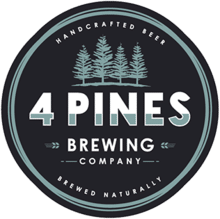
4 Pines Brewing (Australia)
Highlights: A crisp, hoppy, citrus brew with a tart finish from one of the few Australian B Corp breweries and 1% for the Planet member, aiming to be carbon neutral by 2030.
4 Pines Brewing is an Australian brewery offering Ultra Low, a low-alcohol beer with less than 0.5% ABV (and 19 IBU, for those in the know). Ultra Low has a crisp, hoppy, citrus flavor with balanced bitterness and a tart finish. It is available in bottles and cans.
About the company
4 Pines Brewing is a member of 1% for the Planet and has been a B Corp since 2017. Australian B Corp breweries are rare, and there are still only a few dozen B Corp breweries worldwide. The team at 4 Pines Brewing claims to be a ‘bunch of zero waste dreamers committed to finding ways to conserve natural resources.’
This includes reducing its impact at the brewery level by sourcing more ingredients locally and recycling 70% or so of its waste, with plans to reach zero-waste to landfill going forward. Its merch is also created in collaboration with fellow B Corps and 1% for the Planet members where possible. And the brewery aims to be carbon neutral by 2030, with a focus on reducing emissions instead of just offsetting.
The brewery is Ocean Friendly certified and all production is 100% solar powered.

Freestar Drinks Ltd.
Highlights: Totally alcohol-free ‘blended not brewed’ beer from a British B Corp. Certified vegan and gluten-free, with huge savings in CO2, water, energy, and waste.
Freestar Drinks Ltd. is another British brewery and certified B Corp. It makes one non-alcoholic beer, using the innovative approach of not actually ‘brewing’ beer but instead taking most of the same ingredients of traditional beer and blending them. The result is a 0.0% alcohol beverage that closely resembles beer and satisfies much of the flavor craving without the intoxication.
Every bottle of Freestar beer contains just 83 calories and 1.1 g of sugar. This beer is gluten-free, vegan, and made with malted barley, hops, and water. The lack of yeast means nothing ferments, so there’s never any alcohol made, meaning no need to boil it off or otherwise dealcoholize the beer. Instead, Freestar blends these basic ingredients and adds a few other natural ingredients to make the flavor more complex.
About the company
Freestar is socially engaged, running a mentorship hotline and other initiatives to help support young unemployed people in the UK. For Earth Day 2022, the brewery partnered with treeapp UK to plant a tree for every purchase made that week.
Freestar also claims that its beer emits 90% less CO2, uses 80% less energy and 80% less water, and results in 70% less waste than traditionally brewed beer.
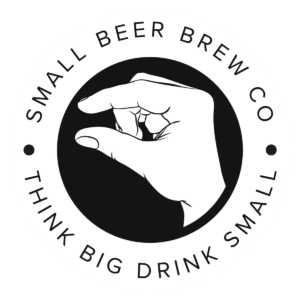
Small Beer Brew Co. ltd
Highlights: Low, not no, alcohol brews from a B Corp and 1% for the Planet member. Certified vegan and brewed in London, UK.
Small Beer Brew Co. Ltd is a B Corp, 1% for the Planet member, and certified vegan by the Vegan Society. Its brews are not strictly non-alcoholic, but close.
This sustainable British brewery specializes in low-alcohol beers with an ABV of 2.8% or less. Their lowest alcohol brew currently is a 1% dark lager that I’m excited to try later this year when visiting my motherland.
About the company
Small Beer Brew Co. claims to be the world’s first brewery to operate a dry floor policy, which saves huge amounts of water typically used in brewing. It estimates savings of more than 6.5 million liters of water to date.
The brewery also runs entirely on renewable energy and uses recycled or recyclable packaging and became London’s first B Corp certified brewery in 2019.
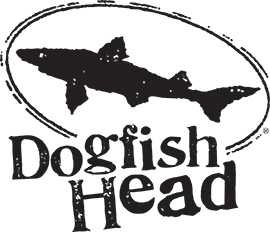
Dogfish Head Craft Brewery Lemon Quest
Highlights: Summer, non-alcoholic wheat beer with citrusy, berry flavors and a hint of salt. Think gose, but with just 0.3% ABV and a nice donation to The Nature Conservancy.
Dogfish Head offers one non-alcoholic beer: Lemon Quest, a refreshing non-alcoholic beer perfect for summer adventures.
Lemon Quest is brewed with lemon puree, blueberry juice, acai berries, monk fruit, sea salt, and Hopsteiner Polyphenol-Rich Hop Pellets™. It is a refreshing, non-alcoholic wheat beer with bright-citrusy lemon, slightly sweet berries, and a hint of salt. Each can provides 90 calories, 6 g of sugar, and 0.3% ABV.
It was developed in partnership with The Nature Conservancy, so you’ll see the logo on every can. Dogfish Head will donate more than $50k to The Nature Conservancy thanks to celebrate Lemon Quest’s launch and the summery, non-alcoholic beer is available nationwide.
About the company
Dogfish Head is a coastal Delaware brewery with Beer & Benevolence on its mind, right from its start in 1995 as the smallest commercial brewery in America. This brewery partners with non-profits to “foster community, nourish artistic advancement, and cultivate environmental stewardship.”
Dogfish Head has supported The Nature Conservancy since 2007 and has raised over $1 million dollars to help fund reforestation and conservation projects in Delaware. Fundraising initiatives include the Dogfish Dash running event and “Paddles, Pints, & Pedals”, involving canoes, kayaks, bikes, and beers to raise awareness of and advocate for public access to a local waterway and dock.
The brewery also supports the Delaware Botanical Learning Garden and has contributed several Dogfish Head Fix It Bike Repair Stations across Delaware. The company’s Rehoboth restaurants are energy-efficient and source sustainable ingredients locally. They are ‘Ocean Friendly Certified’ by The Surfrider Foundation, including using only biodegradable takeout containers and skipping Styrofoam and plastic. The restaurants also offer vegan food options, and all seafood is certified sustainable by Seafood Watch.
Dogfish Head is especially enthusiastic about serving customers Blue Catfish. This invasive species of fish causes environmental havoc in the Chesapeake Bay but now provides sustenance for hungry diners at the brewery.

Anheuser Busch
Highlights: A giant beer company doing things right and leading the way with non-alcoholic and low-alcohol beers and an impressive sustainability strategy achieving real results.
If you’ve ever had a regular old beer, chances are it was made by Anheuser Busch. This beer giant owns Corona and Stella Artois, among other big brands, and is slowly cornering the market on non-alcoholic brews.
Anheuser Busch’s goal is to have 20% of its beer volume sales through NABLABs or non-alcoholic and low-alcohol beers by 2025. Currently, just 6.63% of its global volume is NABLAB, though this comes from a whopping 82 NABLAB brands (40 of which are non-alcoholic beers).
The current range of non-alcoholic beers made by Anheuser Busch includes Stella Artois 0.0, Budweiser Zero, Corona Sunbrew, Cass (in Korea), Hoegaarden (Japan, Brazil, and China), and Quilmes (in Argentina). Stella Artois 0.0 won gold as the best non-alcoholic beer at the Drinks Business Global Masters, a blind tasting competition.
Other non-alcoholic beers from Anheuser Busch include Labatt Blue Pilsener and O’Doul’s, both readily available in grocery stores where I live. O’Doul’s Amber is a pretty passable non-alcoholic beer that is very affordable and scratches the itch for a beer even though it won’t bowl you over with flavor. Others that I haven’t yet tried include So-Lo, Mango Cart Non-Alcoholic Wheat Ale and Resolution Blueberry Acai Golden Ale.
About the company
Anheuser Busch has committed to using 100% renewable energy by 2025 and reducing carbon emissions by 25%. Still, due to the sheer size of this company, its Scope 1 and 2 emissions amounted to a staggering 4.4 million tons CO2 equivalent in 2021 (a 29% decrease from 2017). It will have to do much better to achieve its stated goal of net zero emissions in its value chain by 2040, but progress so far is positive and it’s always harder to turn a bigger ship than a small craft brewery, as it were.
Anheuser Busch uses, as you’d expect, a huge amount of barley and hops. Its plans to increase regenerative agriculture practices throughout its supply chain will make a big difference, then, for soil health and carbon sequestration. The company is also trying to keep things local (for each brew) to reduce emissions and support communities.
Anheuser Busch is building the first green hydrogen-powered brewery, located in Magor, South Wales. This brewery will produce 20 MW of renewable energy and green hydrogen on-site and is expected to become operational in 2024. The brewery already uses 100% renewable electricity including through wind turbines and solar farms. It also built the largest electric fleet in Colombia In January 2021, leasing 200 electric trucks, medium- and light-load vehicles, forklifts, and salesforce cars. This will save an estimated 4,000 tons of CO2 annually.
Anheuser Busch has also invested in new milling equipment to “de-husk” malt before brewing. This husk is then used as a source of heat (biomass), increasing productivity and energy efficiency, and reducing emissions. Six of its breweries use this technology so far, with three facilities carbon neutral (for Scope 1 and 2 emissions only). The first, announced in June 2021, is a brewery in Wuhan, China, the second is in Ponta Grossa, Brazil, and the third is in Passo Fundo, Brazil.
In South Africa, the company’s Castle Lite breweries have started switching ot solar power and biogas for electricity, capturing energy from wastewater treatment on site. Over just a few months in 2021, the seven Castle Lite breweries generated more than 9.7 GWh of renewable electricity, reduicing CO2 emissions by more than 9,000 tons.
Anheuser Busch achieved its 2025 renewable electricity goal early in the US. Its entire portfolio of domestic beer and seltzer is now brewed with 100% renewable energy from solar and wind. This was thanks to the Aneheuser Busch Solar Farm in Texas. The facility generates 222 MW and is a partnership with Recurrent Energy, a subsidiary of Canadian Solar Inc.
Anheuser Busch has also made commitments to improve water availability and quality in high-stress areas of its supply chain.
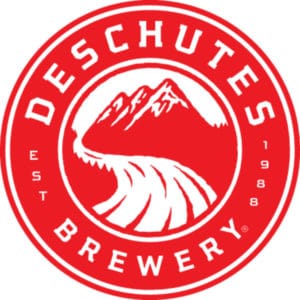
Deschutes Black Butte Irish Dark
Highlights: Award-winning brewery now offers its iconic 15.1% porter as a non-alcoholic beer made with innovative BrewVo technology.
Deschutes regular Black Butte is a whopping 15.1% ABV. Its non-alcoholic version is less than 0.5% but has all the flavor of the original. Made with 2 Row, Chocolate, Wheat, Crystal, and Carapils malts, and Cascade and Tettnang hops, Black Butte has a 30 IBU making it fairly hoppy but not outrageously so. The process uses the same specialty malts and hops as the original, with the same rich chocolate and coffee flavors and a roasted finish.
Deschutes began its foray into non-alcoholic beers with an Irish Style Dark beer in 2020. This was also made using BrewVo technology and won the Country Winner Award at the World Beer Awards and a Silver medal at the U.S. Beer Championships in the Non-Alc Stout/Porter category. Alas, this beer was a limited run but did inspire the brewery to make a non-alcoholic Black Butte in 2022. Here’s hoping this one is also a commercial success and that Deschutes adds to its alcohol-free lineup again soon.
About the company
Deschutes has been around since the 1980s and is now one of the biggest and best known craft breweries in the US. You’ll find the original brewery in Bend, Oregon, though there have been some serious upgrades since the ‘80’s, including making the brewing process much more energy efficient.
For instance, Deschutes conserves water, saving one million gallons or so a year over previous practices. The brewery recycles and composts waste at the brewery, pubs, and tasting rooms, sources local ingredients for beer and food, and partners with non-profit organizations including the Conservation Alliance, Deschutes River Conservancy, and others to protect waterways and the wider environment.
Deschutes is a Green Power Partner through the EPA, and a member of the DOE Better Plants Program. It has committed to a 10% energy use reduction before the end of 2023 and already buys renewable energy through the Blue Sky program. At its Bend location, the brewery offset 30% of energy used in 2019 through wind and solar power.
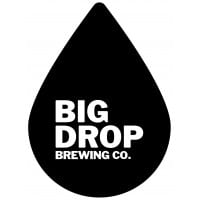
Big Drop Brewing
Highlights: Brewed in the US using methods to keep alcohol content low (less than 0.05%), rather than dealcoholizing. Not vegan or gluten-free.
Big Drop Brewing currently offers four beers in the US: Galactic Extra Dark (World Beer Awards 20 Best Style winner), Paradiso IPA (WBA 20 UK Winner), Pine Trail Pale (WBA 20 Best Style winner), and Coba Maya Mexi Style.
Galactic Extra Dark is a milk stout made with water, lactose (milk), barley, malt, oats, rye, hops, yeast, and cacao nibs. The hops are Bramiling Cross, and each can provides 99 calories and 21 g of carbohydrates, with less than 0.05% ABV.
Pardiso is made with four types of hops, including Citra, and is quite a bit fruitier than the Pine Trail Ale it was based on originally. Citra hops give this one a grapefruity aroma and flavor.
About the company
Big Drop Brewing is another beer company specializing in working with breweries around the world to produce beers locally. This helps keep the carbon footprint of the beer low, makes for faster delivery, and enables better quality control.
Big Drop’s award-winning beers are all non-alcoholic thanks to its specialized process which carefully controls levels of sugars and yeast to limit fermentation. Because the beers don’t have to be dealcoholized, this helps reduce energy consumption overall, and makes for a more robust the flavor.
Unfortunately, Big Drop uses lactose in all its beers, meaning none are currently vegan-friendly. The brewery also lacks any specific sustainability initiatives or accreditations.
Final thoughts on non-alcoholic beer and sustainability
Non-alcoholic beer isn’t going to save us from climate change, but it may help us keep our heads while we implement other sustainability strategies. Cutting out alcohol completely is the best way to reduce your alcohol-related carbon footprint (obviously). But if you still want to enjoy a beer after hiking up a mountain or running the trails, non-alcoholic beer is a great compromise.
Every little lifestyle tweak makes a difference, and this is one that can help your health and the planet. As New Belgium put it when launching its Torched Earth ale, “The future of beer is here. And it tastes awful.” The good news is, with more breweries following New Belgium’s example, we could keep climate havoc to a minimum and still enjoy a beer while the world doesn’t burn.